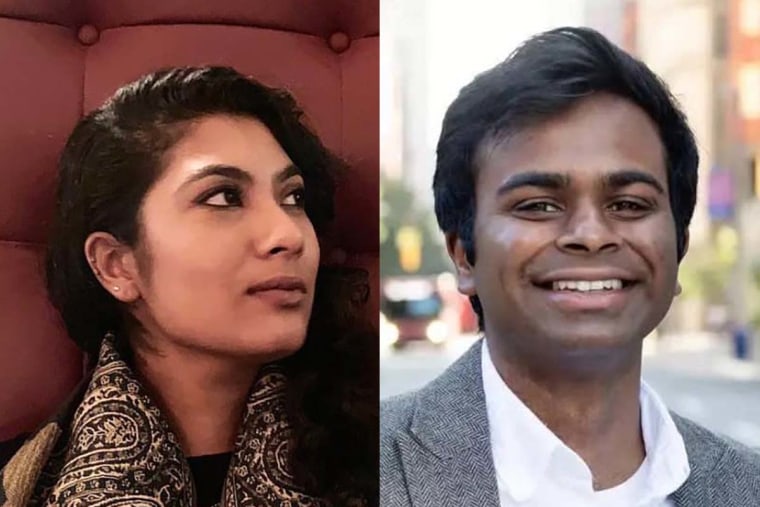Indian Americans say they cannot be ignored this election cycle and are more sure than ever of what they want from their leaders. Experts say they could help turn the tide in 2024.

Sumer Shaikh, left, and Antony Gnalian are two Indian American voters who say they’re questioning voting for Biden because of his record on Gaza.Courtesy Sumer Shaikh; Courtesy Antony Gnalian
After Indian Americans surpassed Chinese Americans as the largest Asian-alone population in the U.S., experts say they’re solidifying themselves as a political force — and a group politicians can’t ignore in 2024. From grassroots activism to voter registration to running for office, Indian Americans are a burgeoning presence in U.S. politics.
“This is a community that’s waking up to the power they have in the electoral space,” said Chintan Patel, executive director of the voter engagement organization Indian American Impact.
Those who identified as “Indian-alone” — or 100% Indian — on the 2020 U.S. Census number 4.4 million, overtaking the “Chinese-alone” population, which was previously the highest. When multiracial Americans are considered, Chinese is still the largest Asian group in the country, but the milestone pointed to how the Indian population has rocketed over the last decade.
In many states and counties where races are tight, winning a sizable portion of the Indian American vote could make the difference for many candidates, Patel said. In states like Arizona, where the number of Indian Americans is bigger than President Joe Biden’s margin of victory in 2020, their turnout could be decisive.
“What’s really important is to not take our communities for granted, not think of them as simply turn-out voters who will show up and vote, as they’ve always done,” Patel said. “But also to consistently talk to them and persuade them and listen to the concerns within the community. Because, again, they make up the margin of victory now.”
One of the most heavily Democratic-leaning groups in the country, at 68%, Indian Americans are beginning to ask tough questions of both parties, he said.
2016, 2018 and 2020 all saw record voter turnouts for Asian Americans, including South Asians. But experts say many are beginning to question Biden’s record on issues like Gaza.
Karthick Ramakrishnan, founder and executive director of AAPI Data, says that Biden’s presidential approval rating has dropped among AAPI communities. For Indian Americans specifically, it now sits at 43%.
![]()